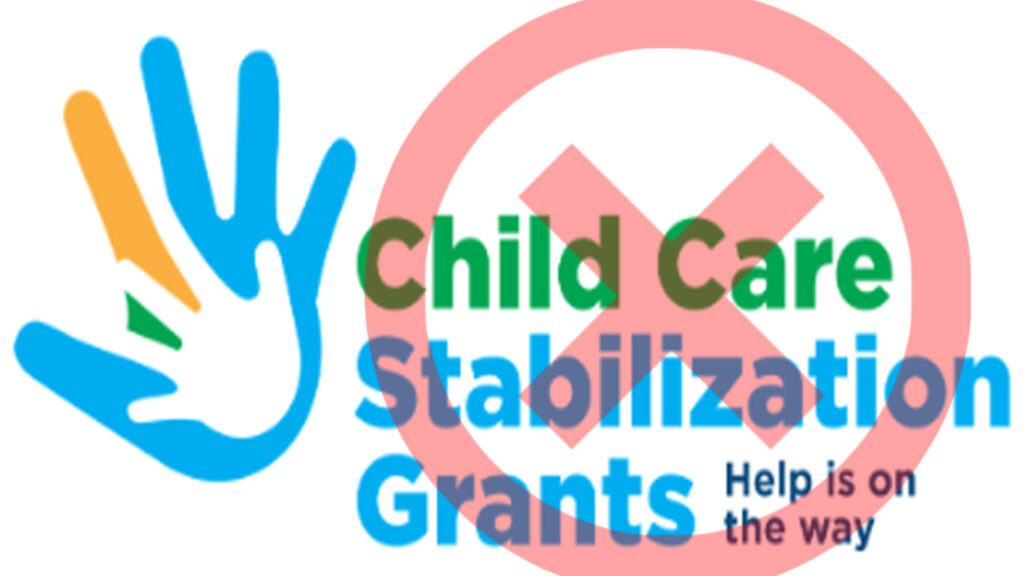More than 70,000 childcare programs are projected to close, and about 3.2 million children could lose their spots due to Congress allowing the end of the childcare stabilization grant program on September 30.
Congress is failing families.
The phrase “Show me your budget, and I’ll show you your values” is more than just a catchphrase; it’s a diagnostic tool for evaluating the priorities of any government. A budget is a moral document outlining where a society allocates its resources. If we apply this lens to Congress and its handling of social safety net programs, particularly those geared toward families and children, it becomes evident that the institution is not doing nearly enough to prioritize the welfare of its citizens.
In this video clip:
- A government’s budget reveals its values, specifically how much it cares about families and humanity. Congress, particularly its right-wing members, is not proactive in supporting families.
- Pandemic-era experiments in public policy, specifically subsidies and programs, helped ameliorate child poverty and provided childcare support for working parents. These programs have shown positive outcomes, including reducing poverty and enabling more people to join the workforce.
- Despite the successes of these programs, many are set to expire by the end of the month. The cessation of these subsidies will lead to the closure of 70,000 childcare programs, affecting over 3 million children and their families.
- The lapse in support will have a domino effect, forcing mothers to leave the workforce and rolling back gains in employment and poverty reduction. These lapses contradict the argument from some economists that these kinds of subsidies would lead to economic decline, whereas, in reality, the opposite occurred.
- Politicians and media are derelict for not championing these proven policies. They must act in the best interest of American families. Keynesian economics and Modern Monetary Theory (MMT) have proven effective in sustaining economic activity and social well-being.
During the COVID-19 pandemic, the government had a unique opportunity to experiment with policies that might have never passed under ‘normal’ circumstances. For instance, the American Rescue Plan offered substantial subsidies and created programs to reduce child poverty and facilitate childcare, enabling parents to work. According to studies from the Center on Poverty & Social Policy at Columbia University, these initiatives successfully reduced child poverty by up to 45%. These findings underscore the undeniable positive impact of direct investment in social programs.
However, as the rant appropriately articulates, these subsidies have expired, with catastrophic implications for millions of families. By letting these programs lapse, Congress is not merely making a policy decision; it is making a moral one. It implicitly states that the children and families benefiting from these programs are not a priority. If these programs are allowed to expire, we can expect to see a devastating domino effect: parents, particularly mothers, will be forced to leave the workforce, thereby exacerbating gender inequality; child poverty rates will spike again, undoing any progress made; and the economic stability gained will be jeopardized.
Perhaps most frustrating is that the lapse in these crucial social programs is not due to an absence of resources but rather an absence of political will and a failure to uphold bipartisan family values. This is not a matter of fiscal conservatism but a matter of choice, a choice to uphold the status quo at the expense of struggling families. This decision undermines the idea of what the government should do, which is to serve the people.
The argument that these programs would lead to economic downturns has been proven false. Providing money to those who will spend it has been shown to stimulate economic activity, as supported by Keynesian economics and Modern Monetary Theory (MMT). Critics often consider inflation a counter-argument, ignoring that inflation rates can be controlled and are not solely the result of government spending but, more often, corporate greed.
Congress’s unwillingness to extend these crucial programs exposes a failure of policy and values. The expiration of these subsidies is a self-inflicted wound that will hurt American families the most. It is a telling sign of misplaced priorities and a missed opportunity to do what is right and just for the citizens of this country. The answers are there; they’re in the numbers, successful policy experiments, and the collective experiences of millions who benefited from them. It’s high time that our politicians pay attention, understand these urgent matters, and act in the best interests of American families. The entire video clip is worth listening to for more context.
Viewers are encouraged to subscribe and join the conversation for more insightful commentary and to support progressive messages. Together, we can populate the internet with progressive messages that represent the true aspirations of most Americans.

